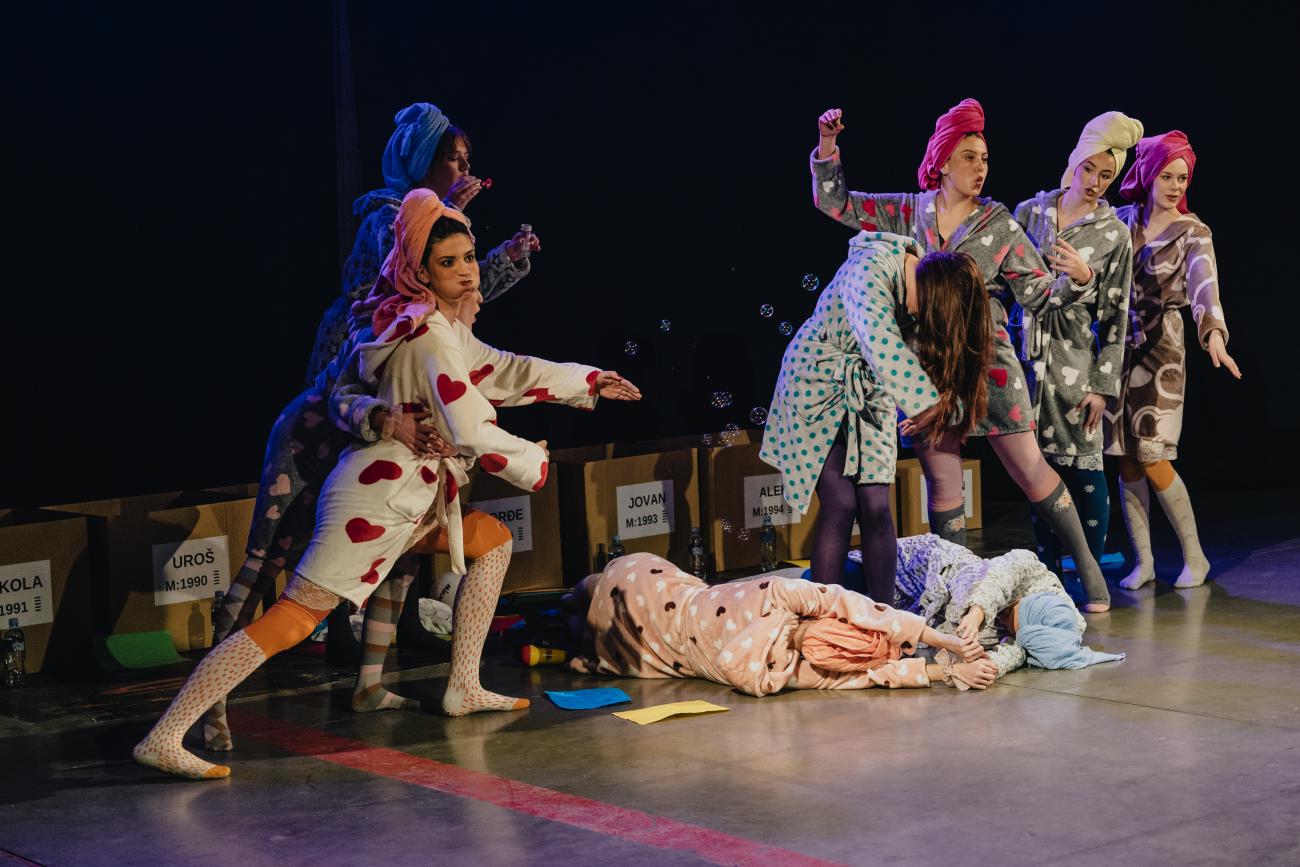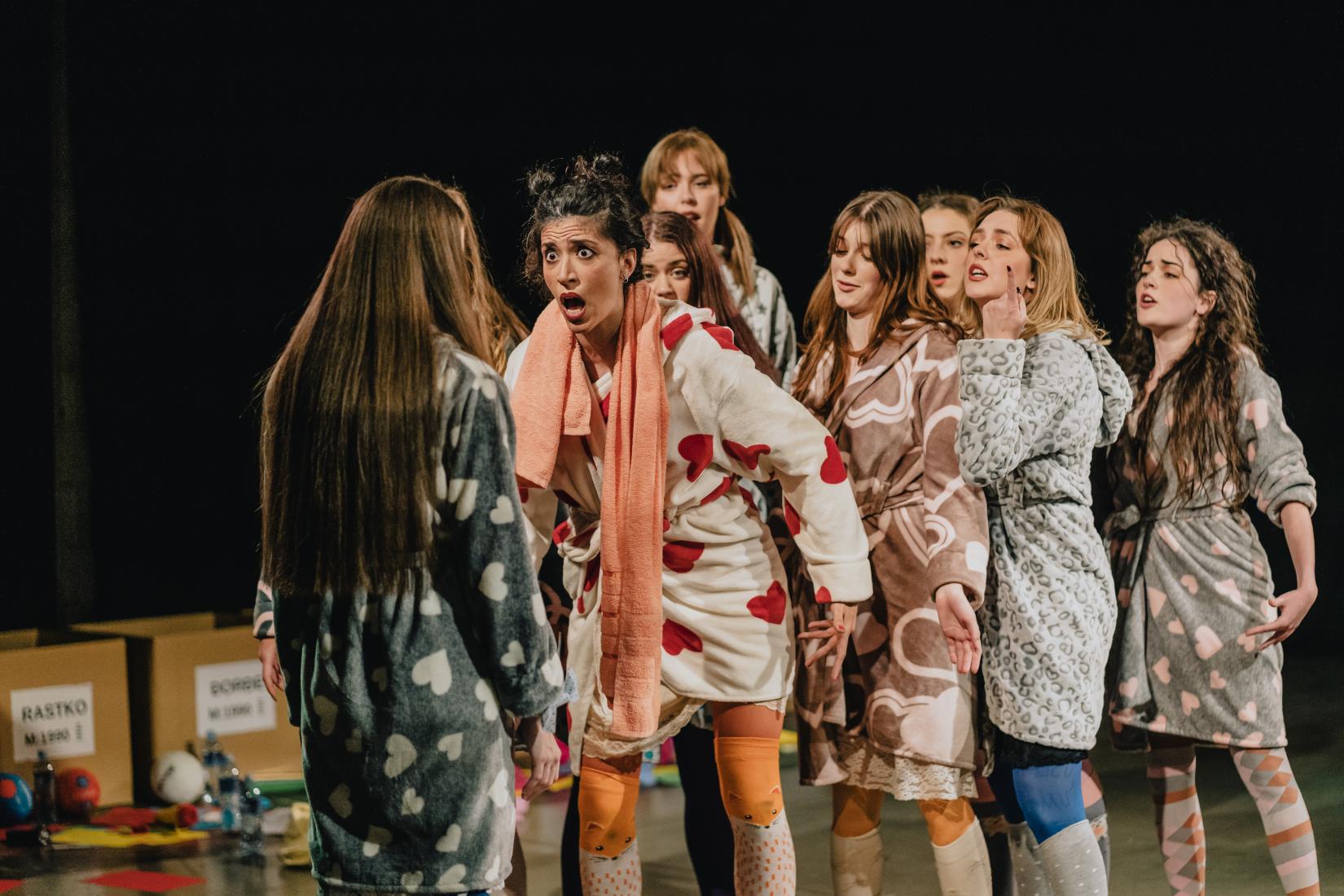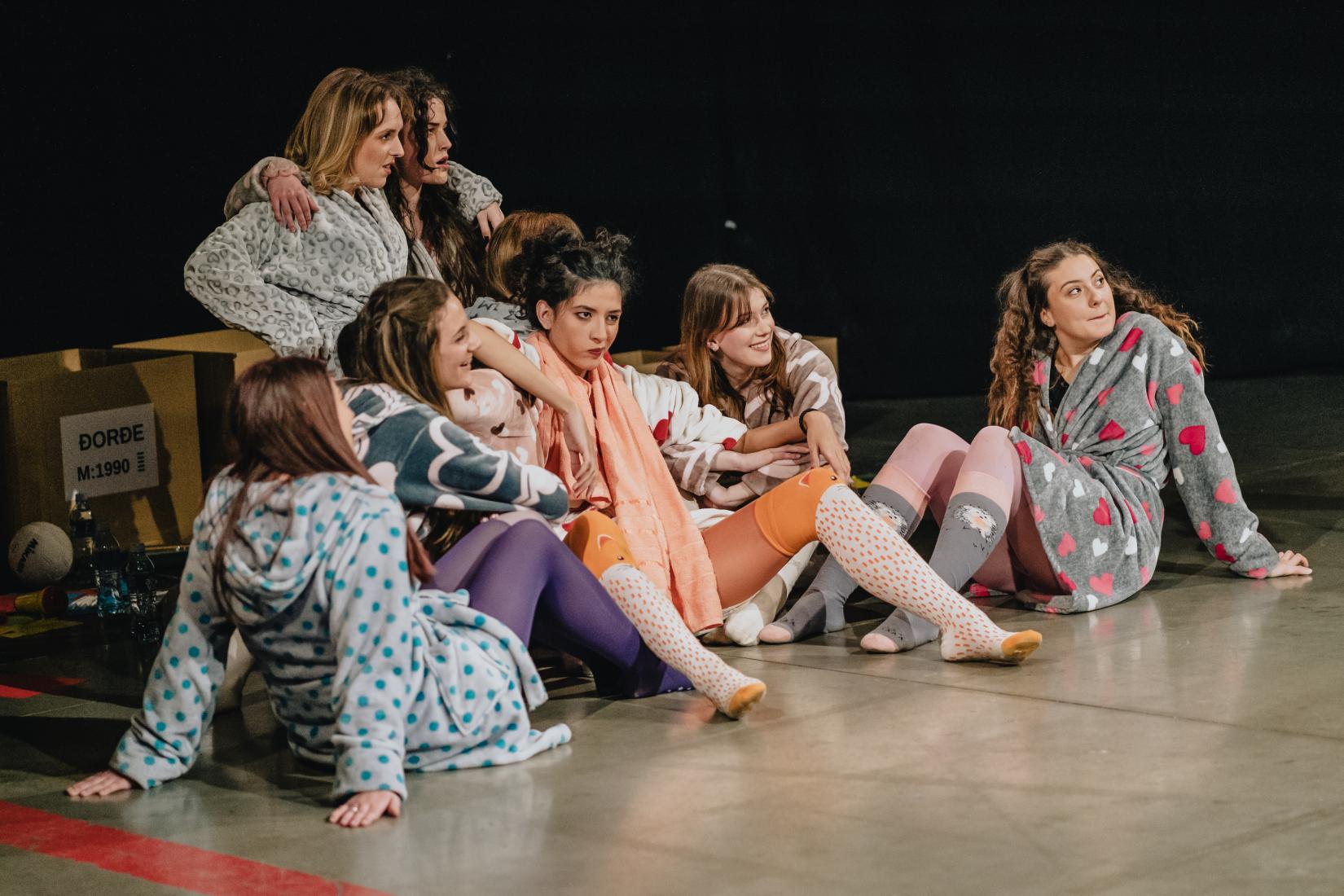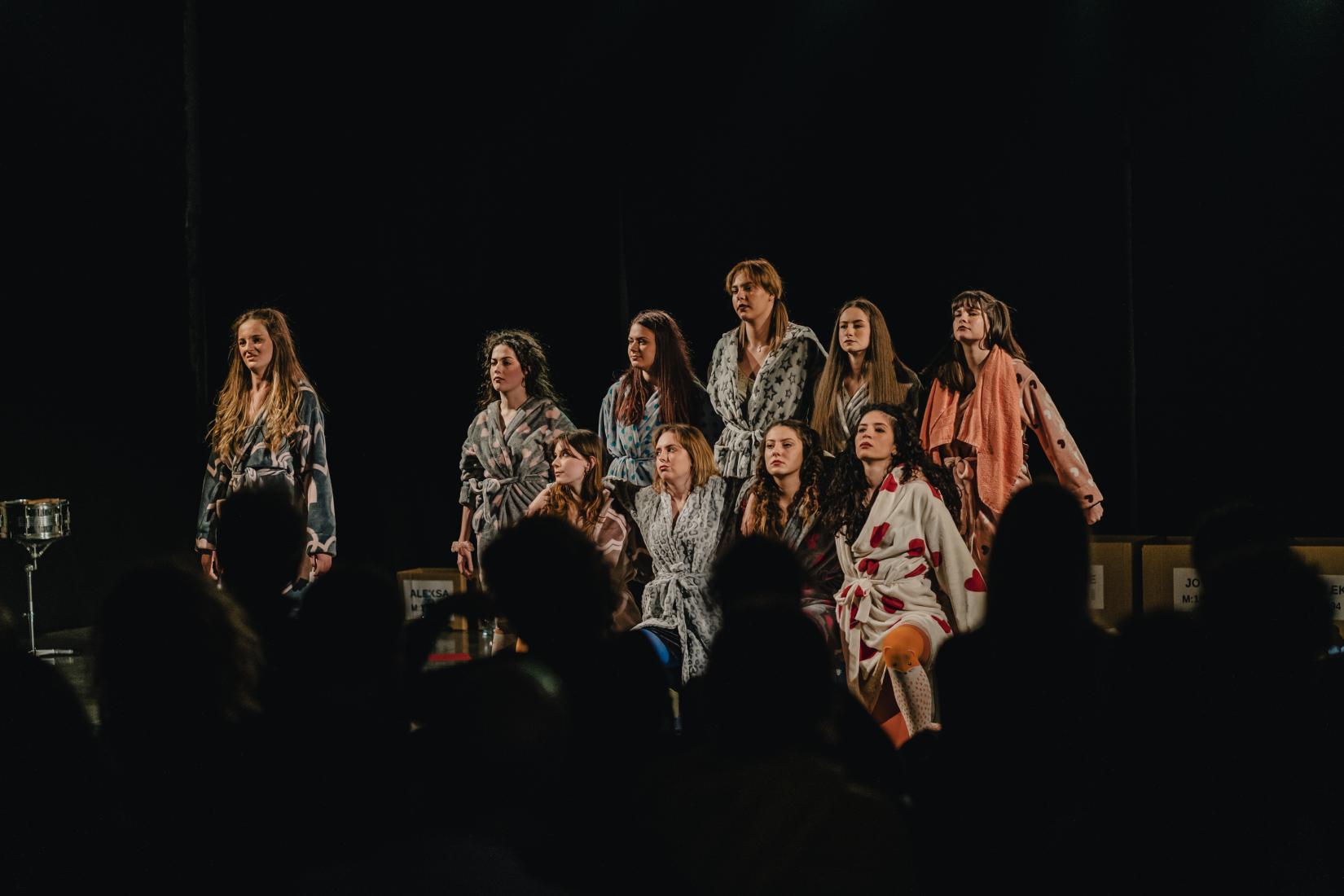New Serbian play portrays the lives of young women in a patriarchal society

Ten young women across Serbia delved into their memories to depict what is it like to grow up in Serbia as a girl.
Through a co-creative process, 10 young women from across Serbia – of different ages, interests and backgrounds – delved into their memories to depict what it’s like to grow up as a girl in Serbia through “Girls”, a production of the socially engaged theatre Reflektor that was coordinated by youth organization E8, with the support of UN Women, under a European-Union funded project.
As light engulfs the stage, 10 young women emerge with towel-wrapped hair, donning fuzzy heart-decked bathrobes and colorful knee-high socks, prepared to use theatre to share their experiences and observations about growing up in a patriarchal society.
Humorous but heart-breaking; deeply intimate but also political – the play uncovers the various barriers, traditions and gender roles girls face in Serbia, as its 10 protagonists explore the thin line between the personal and the political.

“Girls” was created through a months-long, artistic, educational and research process as a result of which these co-authors and performers tell their personal stories, in their own name.
“This play was created using a method that we at Reflektor Theatre call ‘theatre as youth work’. We worked with young girls that were not professional actors. We went through an educational process related to the topics of gender equality and violence prevention. At the same time, we rehearsed and wrote the text jointly, which resulted in a dramaturgical shaping of their personal stories, experiences and observations,” explains the director and dramaturge of the play, Milena Bogavac.
All the stories are authentic, true and special. They show us what it’s like being a girl of a different nationality; what is expected of a middle-born child; what happens when your father is at war; what it’s like when your mother is a feminist; as well as menstrual poverty and many other situations that provide unusual insight and tap into deeply personal childhood memories. They are ‘her’-stories to which many girls can relate, in Serbian society and worldwide.
“The girls, it turned out, connected with each other through conversation... and a large part of our joint work involved long, moderated conversations about our upbringing, ambitions, fears, hopes, views on violence, feminism and the like,” explains Bogavac. “After we chose the co-authors, at a multi-day audition that included training aimed at empowering girls and young women, we met and talked for two months. We shared stories, experiences and tried to act them out through various improvisation exercises. From these games, our play was born.”

One of the protagonists, 21-year-old Milena Perić, says this process enabled her to go back to childhood, revisit and uncover experiences buried beneath piles of memories.
“I got to know myself better. I questioned my upbringing and came to conclusions that helped me to be a better version of myself today,” she explains. “I also got to know other girls, not just as they are now, but I got a glimpse of how they grew up, which made me feel like we grew up together – like we've known each other our whole lives.”
Her colleague, 20-year-old Lena Vujović emphasizes self-recognition as the main result of this experience: “It was not only about penetrating into your depths and something that used to torment you, but it was about sharing with others without fear of judgment. I think we lack such safe places. It was not easy to discover new things about ourselves and others every day for two months. That was the biggest challenge but also the most significant experience we got from this play. When you bare yourself in front of someone you don’t know in such a short time, it’s quite a challenge but it’s also magical and rewarding. I would like to tell all girls and boys not to look at all the obstacles that come their way as a reason to give up, but as a signpost for future steps.”
The production of “Girls” is a central activity in the “Supergirls” project that began in February 2022 and lasted for 12 months, which aimed to deconstruct gender stereotypes and constructs that girls and young women face while growing up, to empower young women through education and cultural production, as well as to inform the general public about the challenges women and girls face in a patriarchal society.
“Girls watch it because it sends them a message that they are not alone. But boys also watch it to better understand girls. In just two months, we performed ‘Girls’ 10 times, in front of full halls, and that is really encouraging,” says Bogavac.
The main idea of the play is to empower girls and young women to be allies and support each other, but also to send them the message that girls can do anything, that all girls in the world are worthy, brave, smart and all deserve to grow up in a safe and secure environment.
The play continues to convey the message that “feminism is not an ugly word” and is not a “fight against men”, but a fight against violence and for equal rights for men and women.


